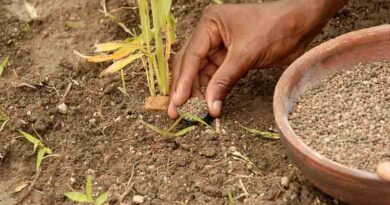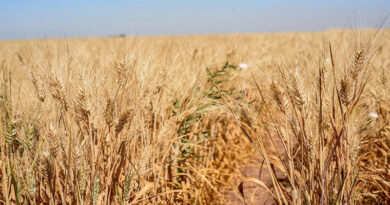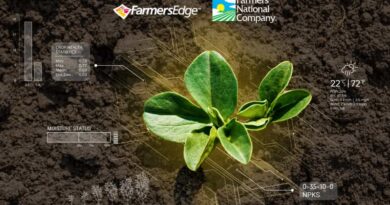Readying Wheat with Climate Resiliency
11 January 2022, US: Agricultural Research Service (ARS) scientists are practicing “tough love” when it comes to preparing wheat for the climate challenges ahead.
In growth-chamber experiments in Peoria, Illinois, they’re subjecting more than a dozen varieties of this important staple cereal crop to a one-two punch of stressors. The first comes from exposure to carbon dioxide (CO2) levels of up to 1,000 parts per million—an atmospheric concentration of the greenhouse gas that’s projected for the turn of the century absent mitigation measures. The other stressor is infection by an insidious fungus known as Fusarium graminearum.
The fungus, which thrives under warm, wet conditions, causes Fusarium head blight, a costly disease of wheat, barley and oat crops worldwide that can damage the grain and contaminate it with mycotoxins, rendering the grain unsafe for food or feed use.
Also Read: The mosaic company names jenny wang to senior leadership team
Martha Vaughan, a supervisory molecular biologist, and William Hay, a plant physiologist, at the ARS Mycotoxin Prevention and Applied Microbiology Research Unit in Peoria, are leading the experiments to evaluate the resilience of different wheat varieties to these stressors.
Their aim is to preempt a worrisome metabolic response of Fusarium head blight resistant wheat plants to high CO2 levels: namely, a build-up of starch and other carbohydrates that corresponds to a drop in grain protein and mineral levels—especially phosphorus, calcium, zinc, iron and copper, which are important to human health and wellbeing. Results from the experiments also suggest that the loss of these nutrients can raise the risk of mycotoxin contamination and threaten grain end-use quality, potentially delivering an economic hit to both wheat growers and millers.
Initially, the scientists compared Alsen, a hard red spring wheat that carries two commonly used genetic sources of blight resistance, to Norm, a popular high-yielding but susceptible wheat variety. Alsen suffered a greater loss in grain nutritional content than Norm, resulting in increased mycotoxin production by certain Fusarium strains. In subsequent experiments, the researchers observed similar responses in an additional nine resistant and six susceptible varieties.
For the researchers, such results underscore a need for action on two key fronts.
One is to systematically evaluate the high CO2 responses of U.S. wheat varieties that share the same genetic sources of resistance to blight—outbreaks of which are expected to worsen as global climate change conditions become more pronounced. The second course of action is to scrutinize existing collections of wheat germplasm or wild relatives of the cereal crop for traits that could be passed into affected varieties to bolster their climate-resiliency, preserving desired grain nutrient levels and blight resistance.
The team also is studying how the fungus itself behaves in wheat plants exposed to high CO2 levels, observing that:
- The severity of blight and production of mycotoxins like deoxynivalenol depends on the fungal strain and wheat variety attacked.
- Besides protein and minerals, Alsen plants suffered a drop in oleic and linoleic fatty acids, which normally contribute to resistance to blight and other fungal diseases.
Ultimately, the team’s findings will inform breeding efforts to shore up wheat’s climate resiliency and help guide growers to adopt crop management strategies that could offset wheat’s metabolic responses to high CO2 levels and, in turn, the likelihood of mycotoxin contamination.
“We are currently working with a number of university wheat breeders to identify climate-resilient, Fusarium head blight-resistant lines in order to address this food safety and security issue,” said Hay, whose ARS collaborators include Vaughan, Susan McCormick, Milagros Hojilla-Evangelisa, Michael Bowman, Bob Dunn, Jennifer Teresi and Mark Berhow.
The team published its findings today in the journal Scientific Reports and is preparing a second paper on the work.
The Agricultural Research Service is the U.S. Department of Agriculture’s chief scientific in-house research agency. Daily, ARS focuses on solutions to agricultural problems affecting America. Each dollar invested in agricultural research results in $17 of economic impact.















